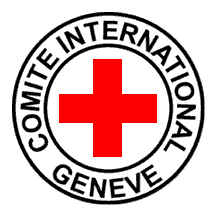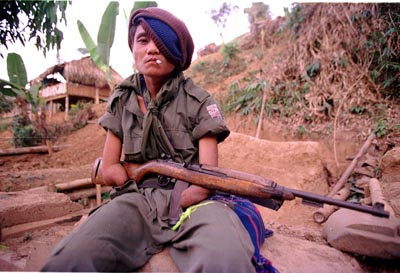
The Red Cross publicly denounced Burma’s military junta for its human rights record last Friday. The move represents a rare departure for International Committee of the Red Cross (ICRC) which prefers quiet diplomacy to open attack. ICRC president Jakob Kellenberger criticised the military regime for violating international humanitarian law by murdering civilians, forcing prisoners to serve as army “porters” in combat areas strewn with landmines and destroying village food stocks.
Burma has blocked the ICRC from independent visits to detention centres and prisons to check on conditions for the past two years, and the Red Cross says its staff faces increasing difficulty in delivering aid. Normally this would result in a private complaint to the relevant government. But the ICRC has run out of patience with Burma. Kellenberger’s rare public denunciation was prompted by the consistent refusal of the military junta to enter into a serious discussion of human rights abuses.
ICRC’s findings were based on observations made by their delegates as well as numerous allegations of abuse they collected during private interviews with thousands of civilians and detainees between 2000 and 2005. Systematic abuses against detainees and civilians are the primary source of serious concern. Burma has set up a prison system which forces thousands of detainees to support the armed forces by serving as porters. These porters have been exposed to armed conflict as well as abused, exhausted, malnourished and sometimes murdered.
Civilians along the Thai-Burmese border have also suffered at the hands of the military. A large-scale military offensive in northern Karen state during 2006 displaced an estimated 27,000 civilians, and destroyed over 230 villages. The army also destroyed their food supplies and means of production. The state is the home of the Karen National Union (KNU) which has been fighting to establish an independent Karen state (Kawthoolei) since 1956. Since the KNU called off a ceasefire in 2006, the army has severely restricted freedom of movement, making it impossible for villagers to work in their fields. This has had a significant impact on the economy, aggravating an already precarious humanitarian situation.
The worsening of relations between the ICRC and Burma is due to a change in the junta’s power structure. In October 2004 then 65-year old General Khin Nyunt was sacked as Prime Minister by senior junta leader Than Shwe. Shwe had become increasingly irritated by Nyunt’s “liberal” policies. Nyunt had made the mistake of announcing a seven-point "road map" to democracy, plans for a new National Constitutional Convention and "free and fair" elections. Nyunt was also responsible for a peace deal with the KNU. However since he was summarily dismissed for “health reasons”, human rights abuses have increased.
The ICRC attack came after a UN special representative finished a five-day trip to Burma. Radhika Coomaraswamy met with several top junta officials on her visit. She discussed the possibility of setting up a UN task force to verify information about the use of children soldiers by the Burmese military and insurgent groups. The report will be prepared for the UN Security Council Working Group on Children and Armed Conflict which meets in November this year.
 Burma’s has been under military rule since 1962 and has one of the world's worst records in human rights abuses. Its isolationism has increased in the last 12 months. The army junta known as the State Peace and Development Council (SPDC) have suppressed the Burmese democratic movement since they declared the 1990 election null and void, while Aung San Suu Kyi and other political activists continued to be detained or imprisoned. The SPDC also forcibly moved thousands of civil servants to the anonymous new capital Naypidaw in 2005 due to a fear of a foreign military intervention and to lessen the impacts of civilian protests in Rangoon.
Burma’s has been under military rule since 1962 and has one of the world's worst records in human rights abuses. Its isolationism has increased in the last 12 months. The army junta known as the State Peace and Development Council (SPDC) have suppressed the Burmese democratic movement since they declared the 1990 election null and void, while Aung San Suu Kyi and other political activists continued to be detained or imprisoned. The SPDC also forcibly moved thousands of civil servants to the anonymous new capital Naypidaw in 2005 due to a fear of a foreign military intervention and to lessen the impacts of civilian protests in Rangoon.According to the ICRC, Burma's military have created "a climate of constant fear among the population and have forced thousands of people to join the ranks of the internally displaced, or to flee abroad”.
No comments:
Post a Comment